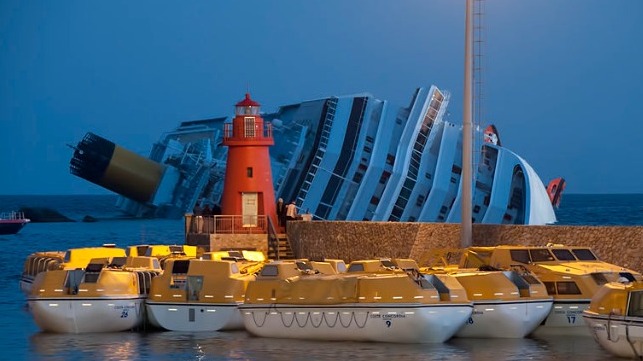The USCG Wants Your Ideas on How to Keep Survivors Afloat

The Department of Homeland Security's Science and Technology Directorate and the U.S. Coast Guard are looking for new ideas for how to keep survivors afloat during a mass-casualty event at sea.
The service wants a novel way to provide short-term lifesaving and rescue assistance in circumstances that make it impossible for normal SOLAS systems - like onboard lifeboats - to do the job. As an example, if a large ferry or cruise ship were sinking rapidly, the crew might not have the time or ability to deploy the lifeboats.
"The commercial marketplace already has large flotation devices, but these are too heavy to be deployed from a U.S. Coast Guard helicopter or easily lifted over a vessel’s bulwark for deployment," explained DHS S&T Program Manager Angela Blair.
The Coast Guard's goal is to build and buy a non-standard, single-use, large capacity, ultra-lightweight floating device that can be deployed from the air or a surface vessel. With this capability in the inventory, Coast Guard aircraft and response vessels could deploy mass rescue devices at the scene to keep passengers afloat until all could be rescued.

that matters most
Get the latest maritime news delivered to your inbox daily.
Innovators, industry, academia, and laboratories are all invited to submit their proposals for a large capacity survival float, and the Coast Guard has an open solicitation for white papers running until August 5.
The commanding officer of the U.S. Coast Guard Research and Development Center, Capt. Dan Keane, emphasized that the solicitation is open to all practical concepts. "We’re looking forward to working with the public to help develop their innovative ideas into a practical and useable design," Capt. Keane said. "If successful, the mass life-saving device will give first responders additional capability and capacity to respond quickly to a mass rescue situation."
